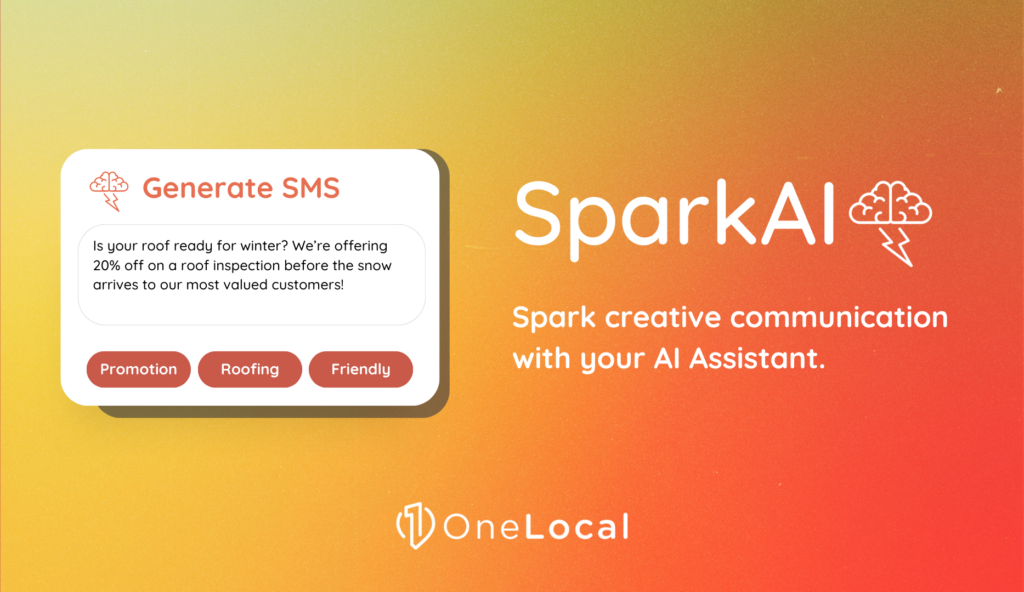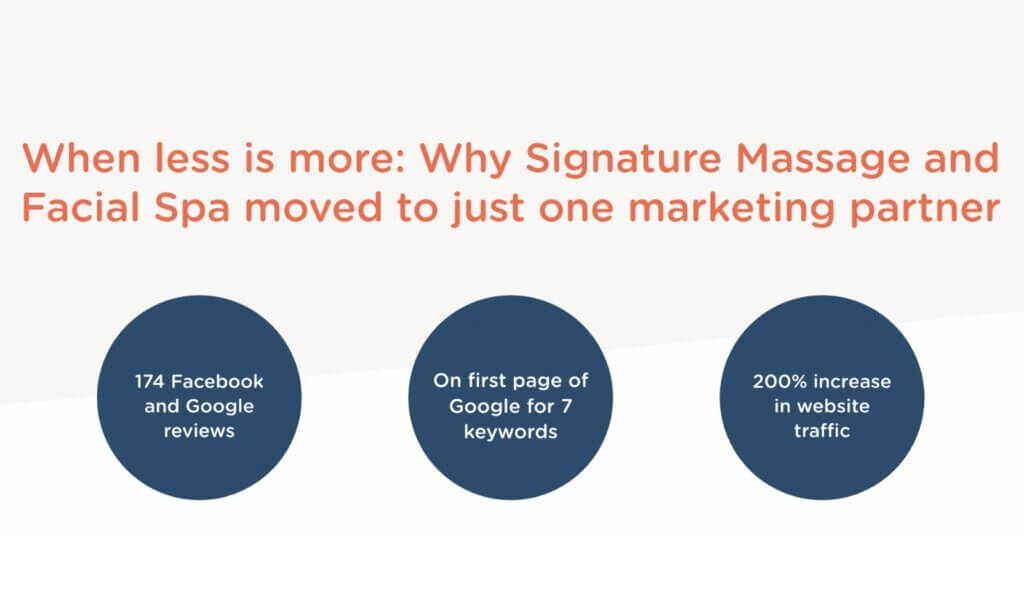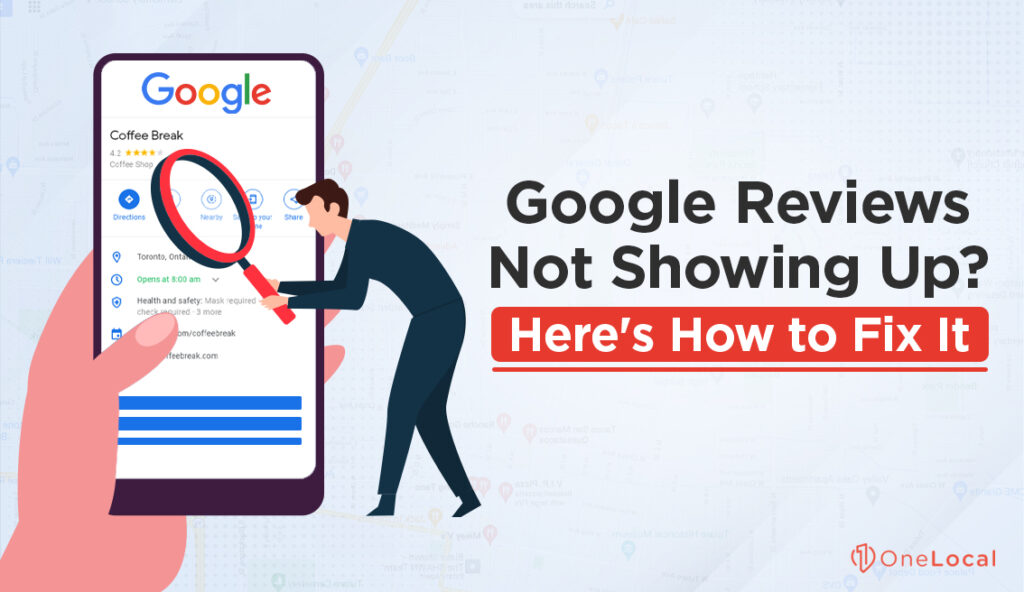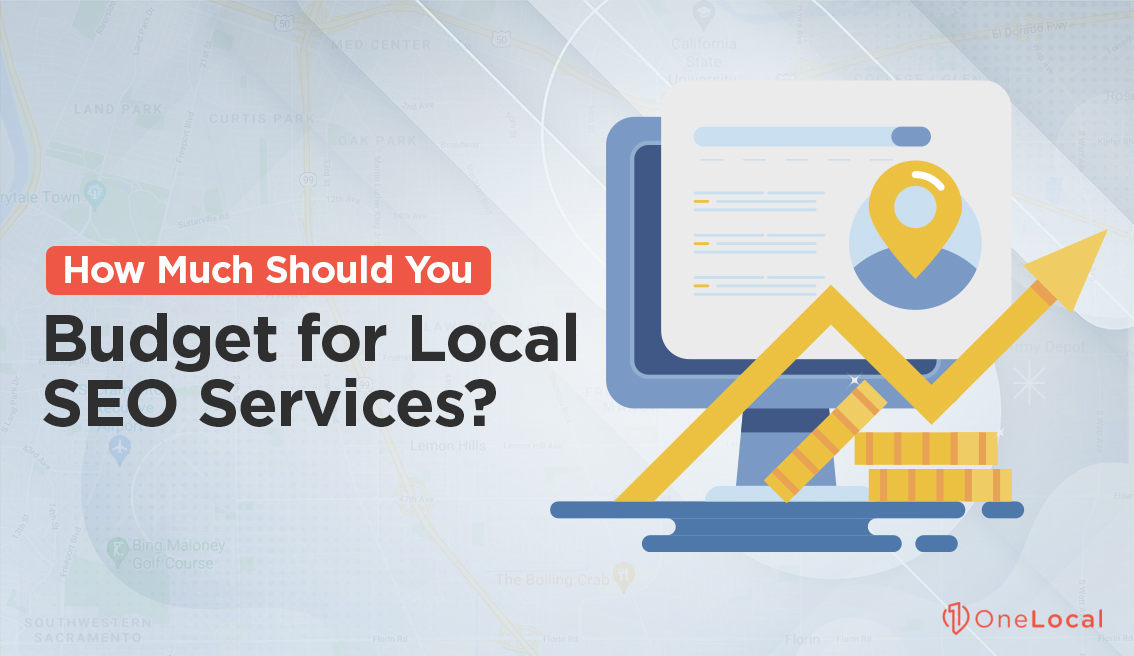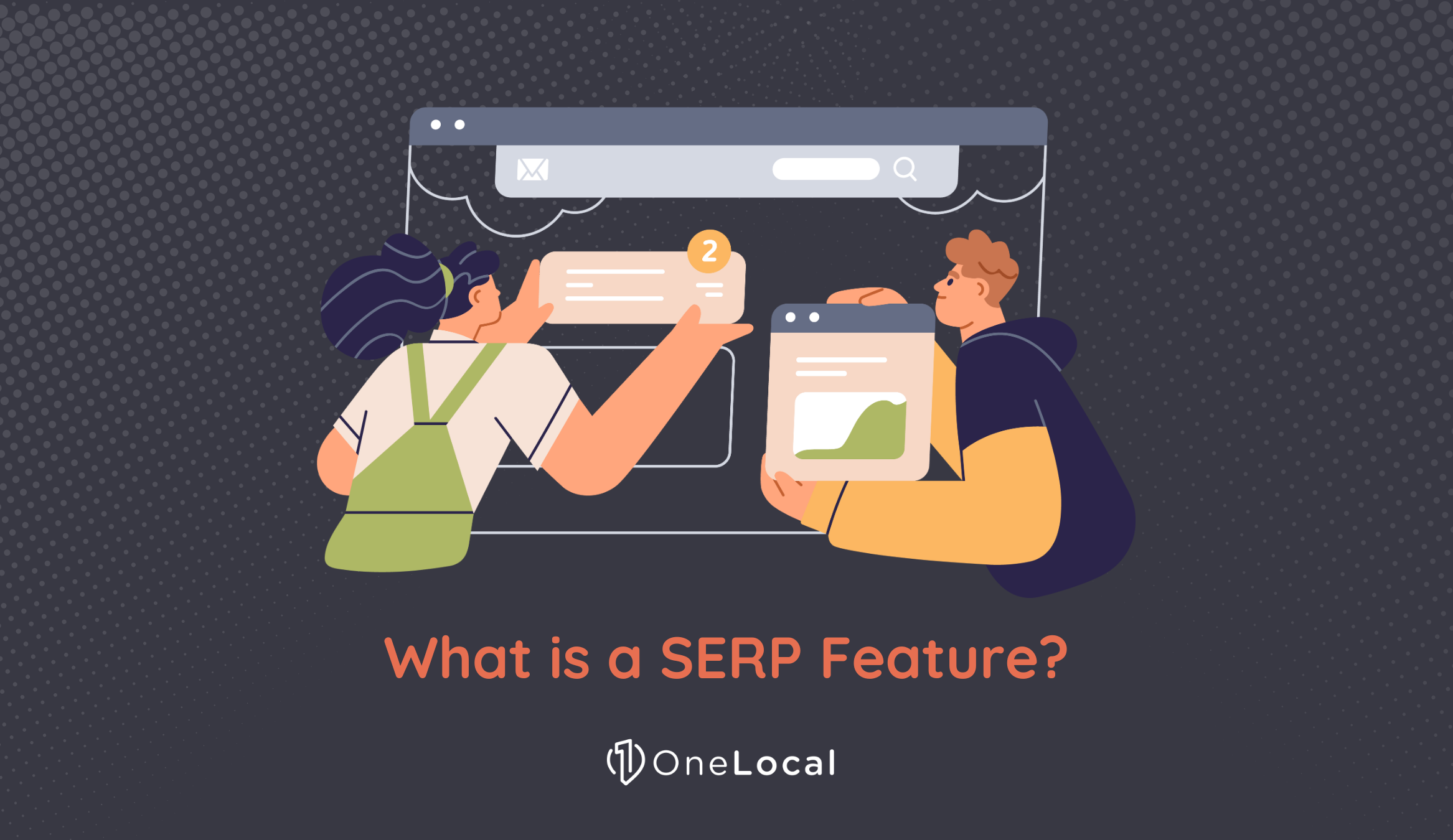Budgeting for Local SEO
SEO and all of the related marketing necessary to be a success online can be very costly. The numbers some businesses spend on their marketing are shockingly high. And yet, one thing holds true for nearly all of them: they still make a profit. Local SEO and local marketing, together, can turn every dollar spent into profit. It’s less of a matter of if; and more of a matter of how much.
The real trouble comes in knowing what sort of a budget you should assign to this marketing. A small business can have very different numbers from a chain with three locations across a city, and they will have very different numbers from a national or international brand. One day of Disney’s advertising budget would set a small business for life, after all.
While we can’t give you worthwhile numbers in this specific blog post, we can give you a general idea of the costs and ranges you might expect to pay for various services. Moreover, if you’re interested in a specific analysis of your business and your own local marketing, as well as suggestions and services you can use, contact us for a consultation.
Different Types of Local SEO and Marketing
Local marketing and local SEO use different techniques than global marketing; this is specifically due to the ability of a small business to target a smaller local geographic area. If you’re a business based in Kansas City, you don’t need to target NYC, after all.
Local marketing also relies on more than just local SEO. Anyone searching the web is free to search for national or global companies to suit their needs. While you can get in front of them by using local SEO techniques and tools, you also need to focus on more local channels, as well.
What kinds of channels should you be considering?
- Organic SEO via content marketing, social media, and other techniques.
- Paid SEO via sponsored content and other forms of paid marketing.
- Paid Advertising, using PPC ad systems and other advertising.
- Local print advertising.
- Local billboards and other display advertising.
- Local radio and television advertising.
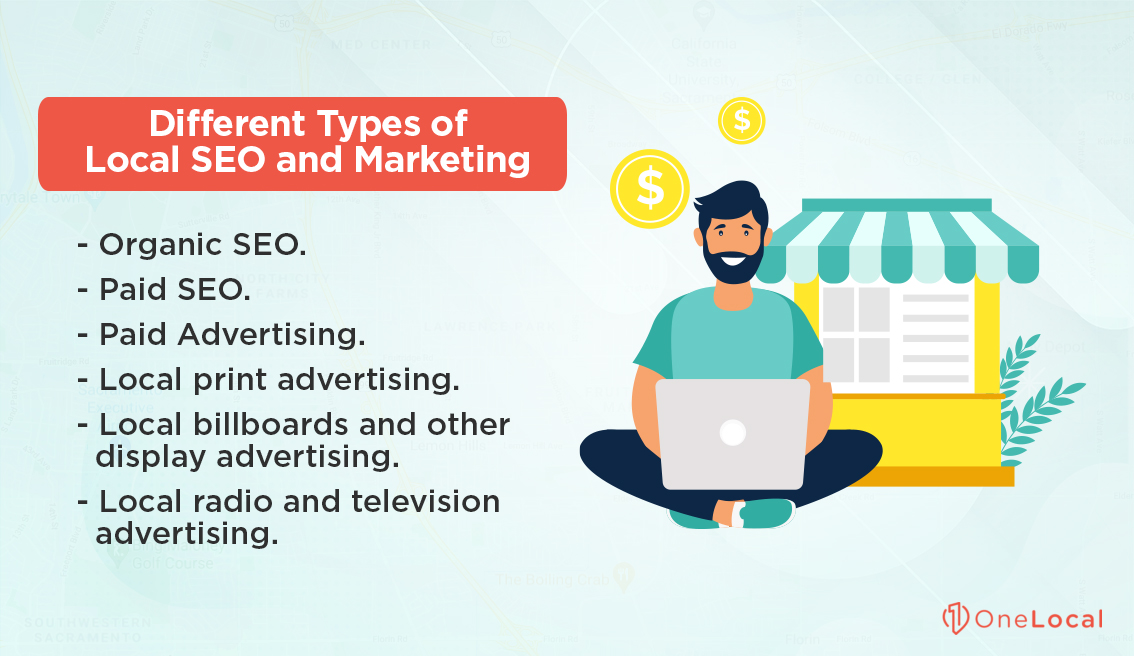
You’ll notice that most of these channels can’t really be considered SEO, and many of them aren’t even online or even digital. (And no, an electronic billboard isn’t necessarily “digital” advertising.)
Each of these kinds of marketing may or may not be valuable to your business. Moreover, they may or may not be within your price range. Some are much more expensive than you might expect for what you get, while others are correspondingly less expensive. It also all varies a ton based on industry, location, competition, and more.
You Get What You Pay For
The adage that you get what you pay for is touted for just about every purchase anyone makes. Sometimes it’s not true, and there’s little difference between a cheaper and a more expensive option. A pair of scissors might stand out here; a $3 pair of scissors isn’t a whole lot different from a $10 pair of scissors, as long as they aren’t terribly specialized.
Other times there’s a bell curve. Technology is often like this. A cheaper version is older, less powerful, slower, and not quite as useful for as many tasks. Depending on your use case, it can still work for what you need it for, but most people go for something not-quite-top-tier. The top-tier, cutting-edge technology is even better; but much more expensive than it needs to be, and will drop in price over time. After a certain point, the price-to-power ratio shifts, and each additional dollar spent has less and less of a return.
In yet other times, the more money you invest, the better your returns. There are a few cases where the potential returns on an investment are functionally limited only by the money you have to invest. It’s rare, but it can happen.
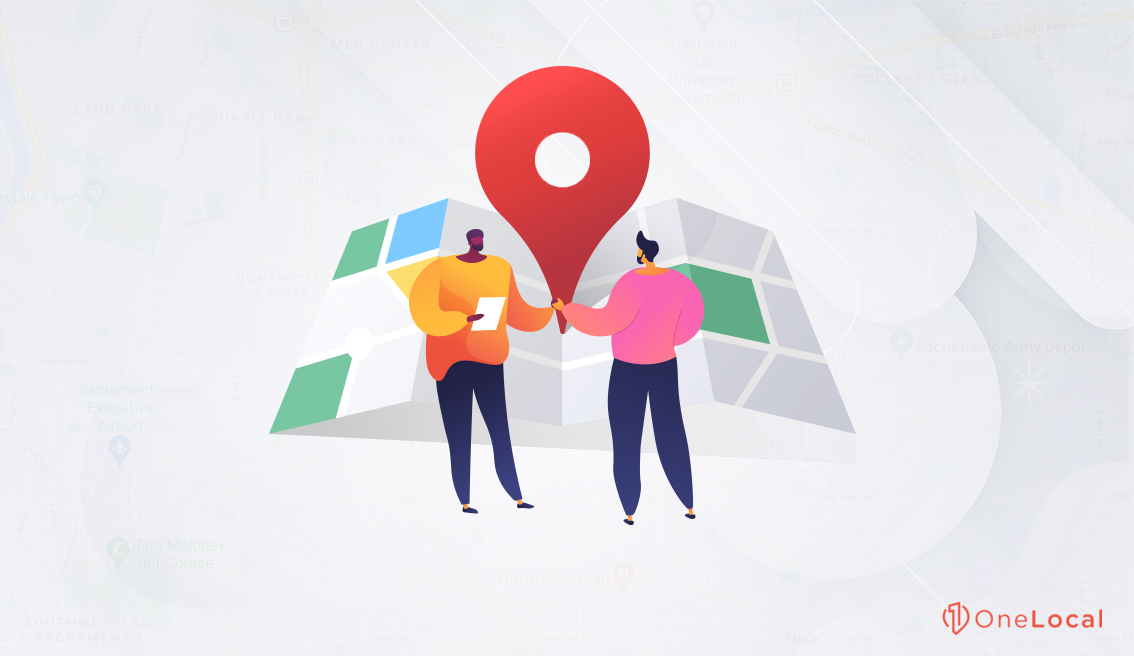
Where do SEO and marketing fall into this category? Well, there have been surveys about it, with some interesting results. From Search Engine Journal:
“One recent survey found that less than half of all small businesses have any money earmarked for SEO. For businesses that do invest in SEO services, they average just under $500/month.
In the end, it turns out that SEO is one of those things where you actually do get what you pay for.
Businesses spending more than $500/month are 53.3% more likely to be ‘extremely satisfied.'”
At least within local SEO (and digital marketing), money gets results. The less you spend, the less reach, the less results, the less influence you have. The same can hold true of more traditional physical marketing techniques, but they tend to be less efficient per dollar, largely due to the associated costs. For example, online display advertising is as simple as changing out a jpg and a link, whereas a roadside billboard requires physical materials and a trained work crew.
What You Get with Cheap Local SEO
When you get what you pay for, you might wonder; if you pay just a little, can you get away with a little value and use the profits to scale up?
For example, if you budget $50 per month for SEO and online ads, can you turn that $50 into $100 and reinvest $75 next time around?
The answer is: yes, but it’s challenging.
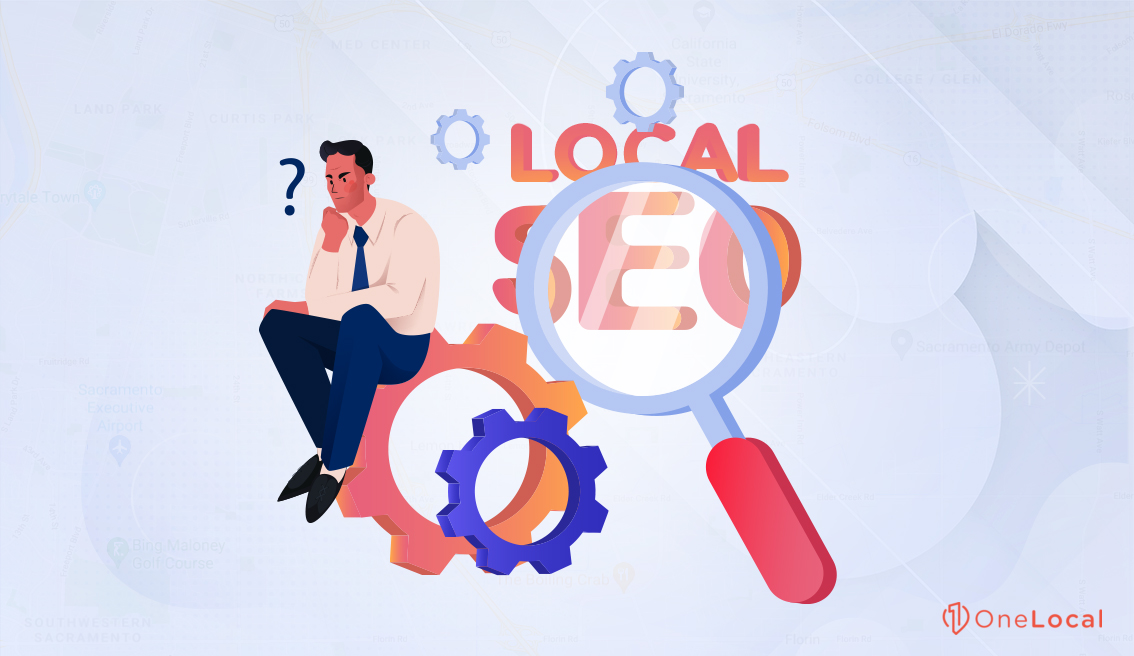
The reason is also simple: the SEO industry, especially cheap SEO services, is packed with traps. Some tools cost money to do something you can do for free. There are people claiming to be SEO pros who barely know what they’re doing and charge so little that it’s not worth trying to recover when it goes wrong. There are dedicated scammers who know what they’re doing won’t work, but they charge for it anyway; and cut and run before they get called out.
It’s difficult to avoid these traps. Worse, the cost of falling into one is more than just wasted money and lost time. Poor SEO can require anything from a content audit and site restructuring to fix, all the way to a Google penalty that can take months or years to reverse. Spam techniques can get your domain blacklisted, make it impossible for you to send newsletters in the future, and even get you banned from ad programs and de-indexed from Google itself.
In many ways, it’s better to not pay for local SEO at all than it is to get caught in one of these cheap traps.
What Are the Average Prices for SEO?
SEO can range from free or sub-$100 per month, all the way to tens or hundreds of thousands of dollars per month. Major corporations pay massive retainers and salaries, and some top-end SEO companies make millions per month from their contracts. Obviously, this is out of range of the vast majority of businesses.
What kinds of prices might you expect?
According to Foxxr, 75% of SEO professionals charge a retainer fee of between $2,500 and $5,000 per month. There may also be additional costs for specific projects, hourly fees, and ads. SEO can run on a retainer basis, on a project basis, on an hourly basis, or a combination of all of them. Some are even performance-based, though relatively rare, accounting for under 15% of SEO services.
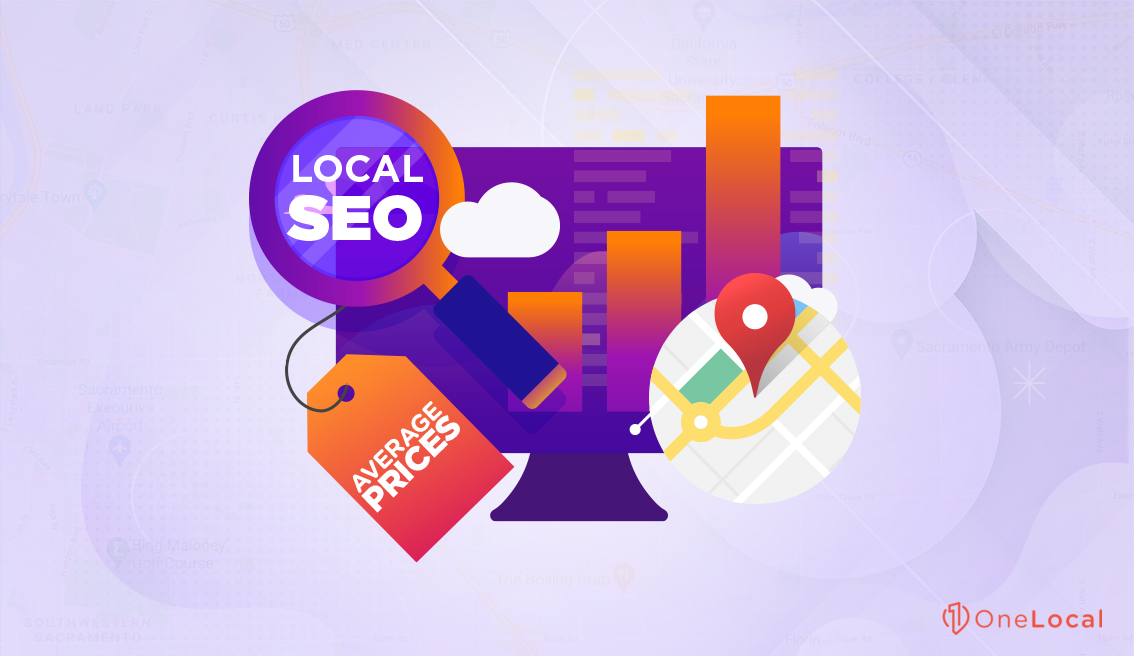
Dagmar Marketing cites their fees as between $1,500 to $2,300 per month. $50-$150 of this goes to building local citations, 10x that goes to building local links, and additional fees are added on for multi-location businesses that need to target different regions.
General SEO services, content marketing, digital ads, social media marketing; it all adds up. Small businesses can expect to pay anywhere from $500 per month for low-quality but functional services, all the way up to $5,000 or more per month for “good” but not great service. And, of course, the sky is the limit.
How Local SEO Differs
One thing to remember is that SEO and local SEO are different. Local SEO can be cheaper in many ways.
- Local link directories and publications typically have lower prices than general or national versions. A local news affiliate will likely have a reasonably affordable advertising system designed for local businesses, whereas paying to advertise on a national publication will be extremely expensive.
- Local advertising can target a much smaller audience than a broad-scale campaign. When your target audience is “anyone in the USA with an interest in cars,” you have to reach thousands of people before you find one with an interest in you. When your target is instead “everyone in Kansas City,” suddenly you have a much smaller group of people to reach and a higher success rate per person reached.
- Local advertising is given a slight edge. Take, for example, when you perform a Google search for a kind of food. Of course, Google will provide you with general, national results, like recipe sites and national chains. On the other hand, they will also prioritize showing you local restaurants serving that food.
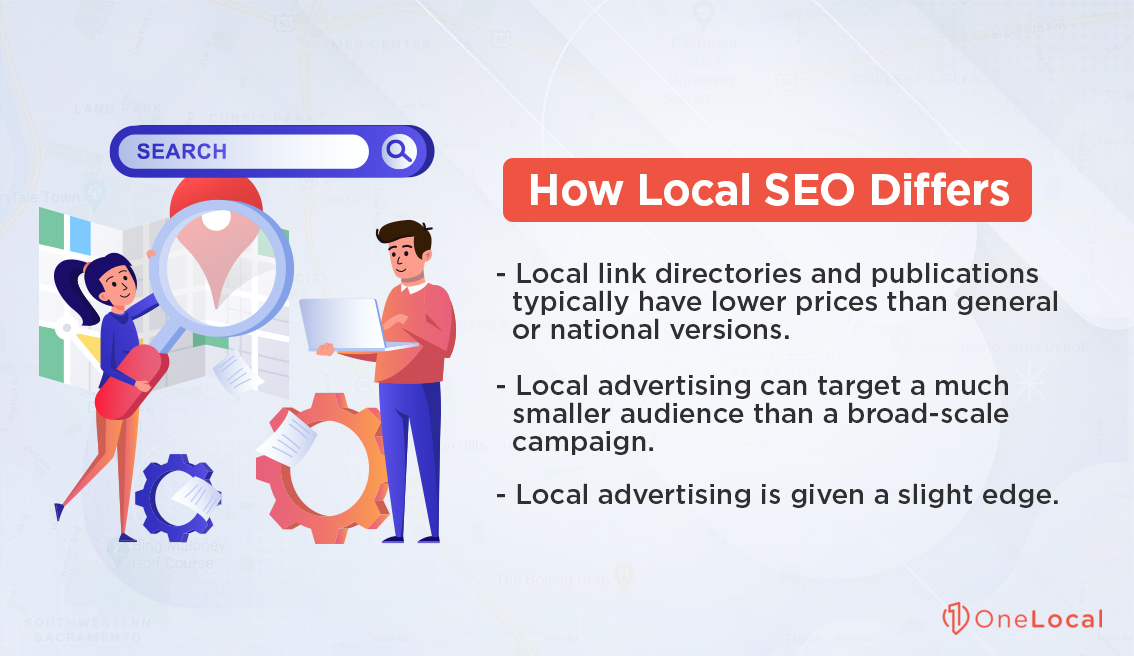
Local SEO programs can be cheaper, but local businesses also tend to have less money available. A small business catering to a single county can only make so much money before it reaches market saturation, after all.
It’s a constant balancing act to find the right budget to make money without reaching the tipping point where over-spending gets you less and less results.
How to Reduce the Costs of Local SEO
There are two ways to reduce the overall costs of local SEO.
The first is to replace money with time. Virtually everything that makes up local SEO, marketing, and advertising can get done on your own. You can reach out to journalists and newspapers. You can submit your site to directories. You can run, optimize, and influence ads. You can manage your social media presence.
None of these skills are exclusive or even all that difficult to learn. There’s just a lot of it, built up over decades of evolution, and a lot of misinformation out there to avoid. Learning it takes time, successfully implementing it takes even more time, and optimizing it continues to take time. It can become a full-time job, and in fact, often is a full-time job for many.
Of course, time is money. The time you spend learning this – or that your employees do – is time that could be better spent in other ways, right?
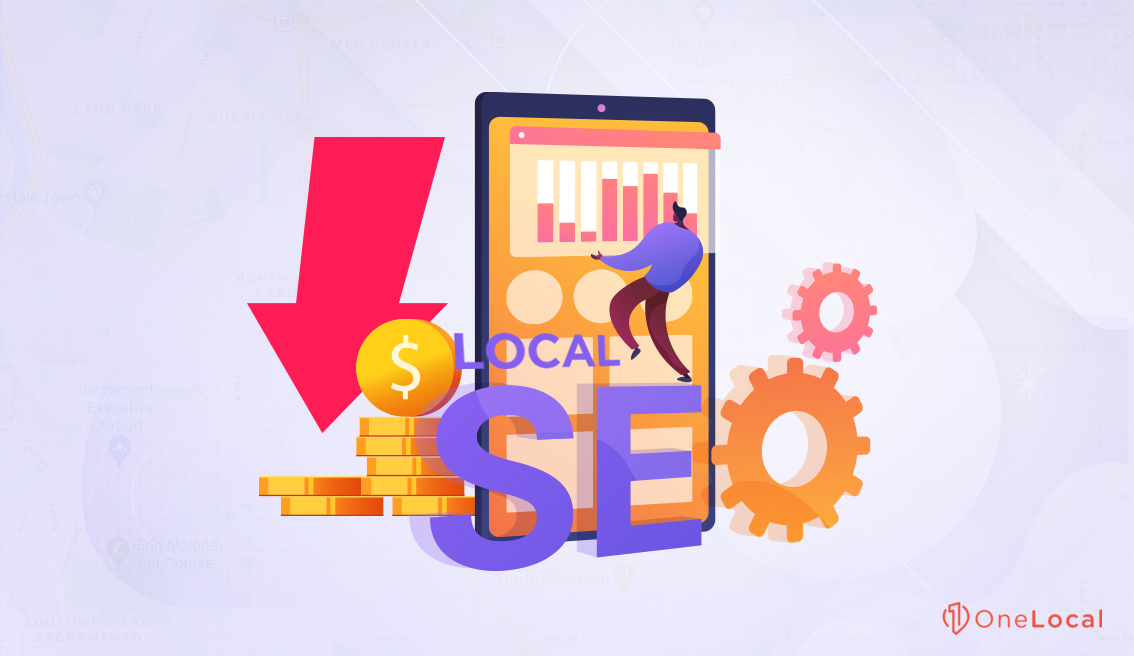
The second option for reducing the costs of local SEO is to consolidate it all into a single service with reasonable costs.
See, many small businesses build up individual services as they go. They decide they need a blog, so they hire a content marketing company to handle it. They decide they need paid ads, so they hire an advertising agency to handle them and work with the marketing company. They decide they want to build links, so they hire an outreach agency to build links and citations. Over time, all of the tools, services, and agencies they work with end up costing far more than one consolidated service doing it all.
That’s where we come in. OneLocal offers a variety of local marketing and local SEO services for businesses of all sizes. LocalSEO, for example, builds Google reviews, links, and search ranking naturally. LocalAds runs paid advertising with an eye towards making the most of every dollar spent on the ads we run. LocalReviews builds citations and reviews for your business by soliciting them from genuine customers in your area.
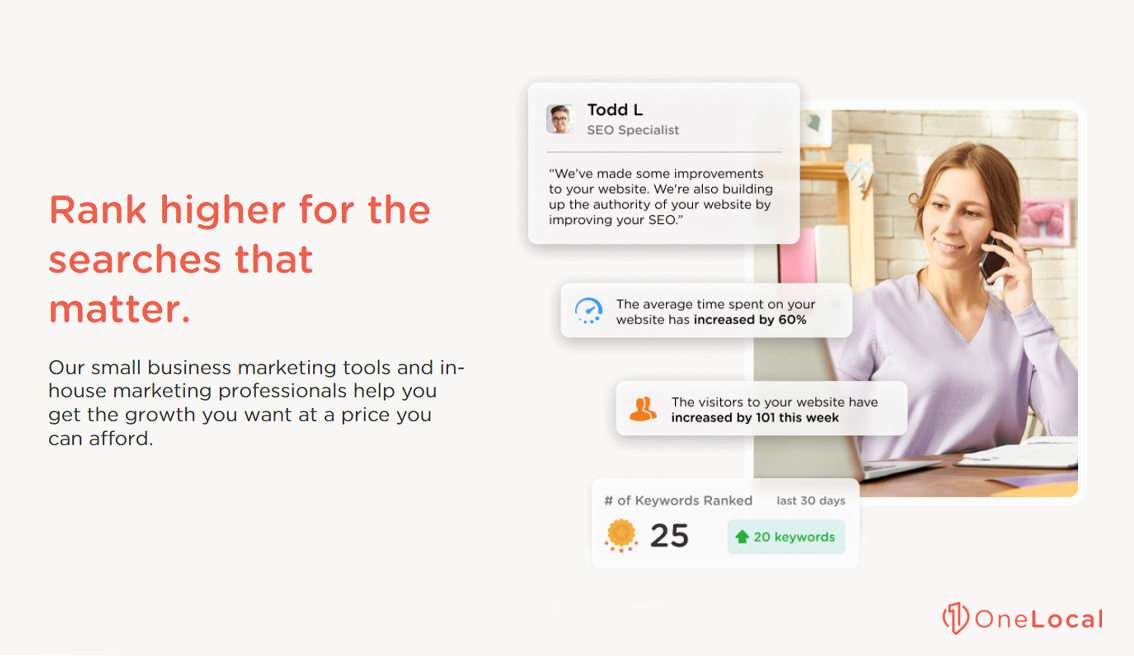
The key is that these are not disparate systems; they’re all part of the greater OneLocal whole. When you contact us, you can get a free assessment of your current web presence, the state of your site and your marketing, and any roadblocks you may have run into along the way. This assessment can help you tailor your specific needs and our services, and gives you the most cost-efficient SEO and marketing you can get. What’s not to love?
Additionally, if you have any comments, questions, or concerns regarding local SEO, marketing, our LocalSEO service, or similar, please feel free to reach out and contact us, as well. We’d be more than happy to assist you or your company at a moment’s notice!

Rachel Solway is a seasoned marketing professional dedicated to empowering small businesses through innovative marketing strategies. With extensive experience at OneLocal, a leading marketing solutions provider, Rachel’s insights are helping thousands of local businesses navigate the digital landscape.

